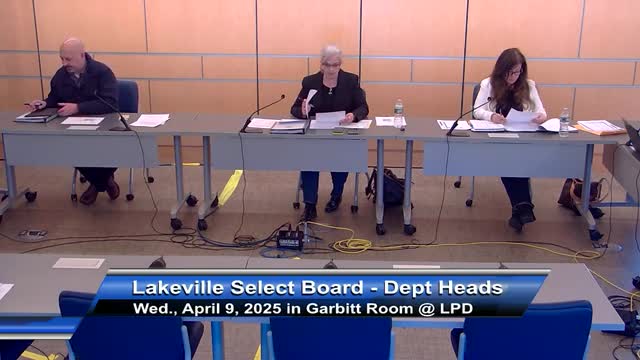Article not found
This article is no longer available. But don't worry—we've gathered other articles that discuss the same topic.
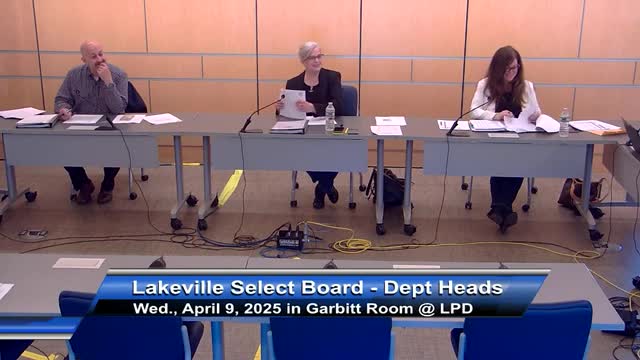
Lakeville library to run ‘food for fines’ program for 30 days to support local pantry
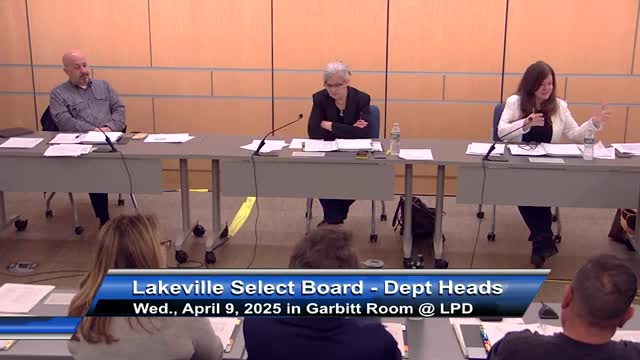
Select board budget hearings spotlight austerity plan, library, town clerk, parks and fire staffing debate
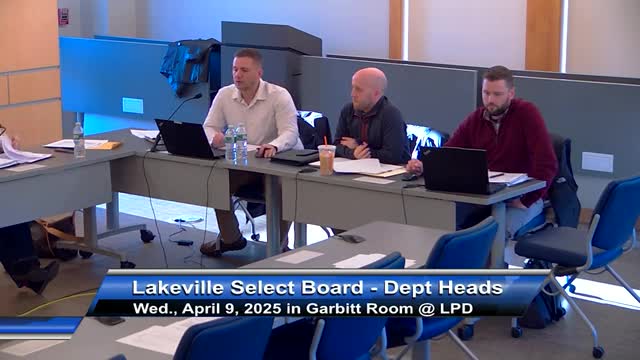
Select board approves $33,050 change order for proposed fire station waterline design
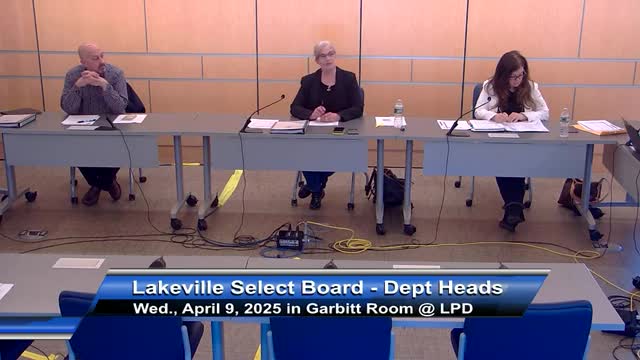
Maureen Candido elected chair and Brian Jay vice chair of Lakeville select board
